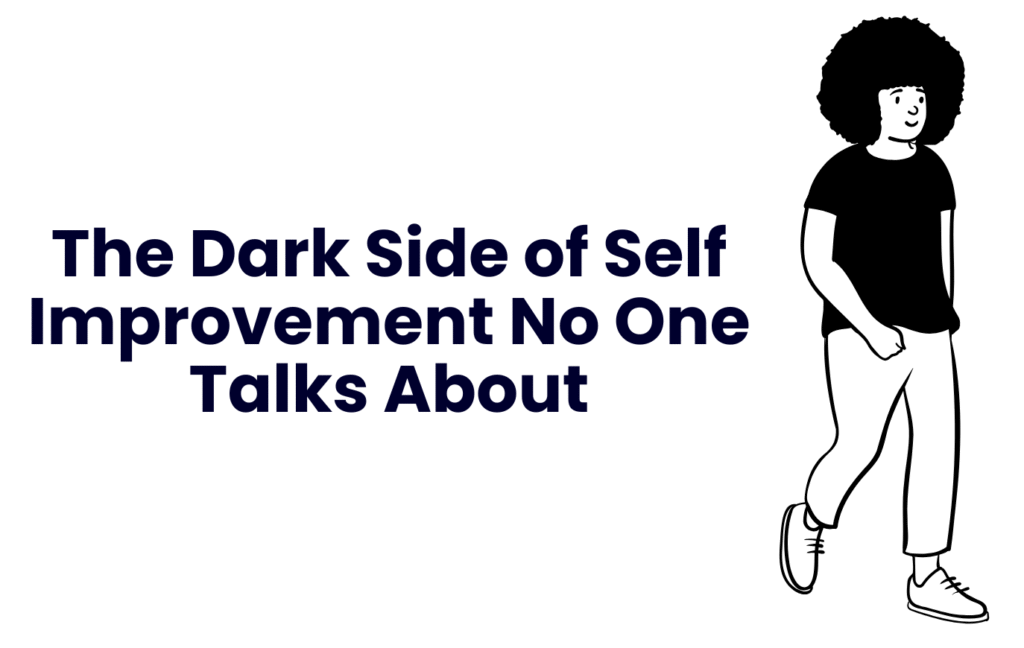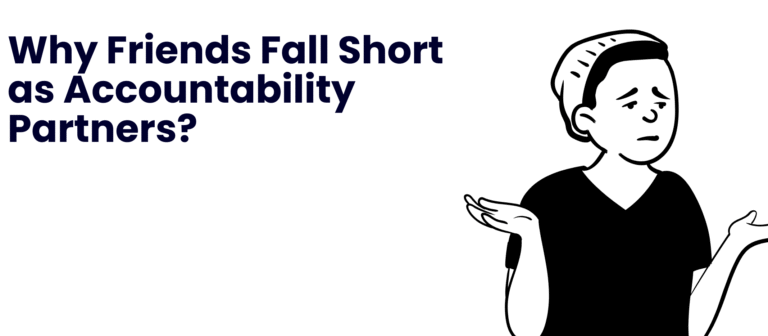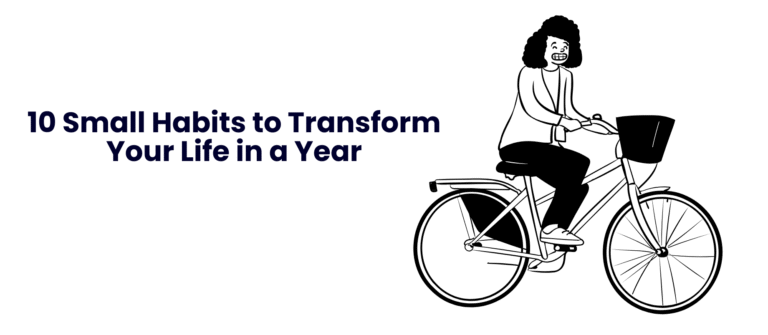The Dark Side of Self Improvement No One Talks About
Self improvement seems like a great idea at first. However, many people don’t know about the serious problems it can create. Moreover, the personal growth industry often hides these dangers from customers. Additionally, toxic patterns develop slowly and can be hard to spot. Furthermore, these issues affect your mental health and relationships.
 Most books and courses only talk about success stories. Therefore, people start their journey without knowing the risks. Also, millions of dollars are made by keeping these problems secret. Most importantly, you need to know what to watch out for.
Most books and courses only talk about success stories. Therefore, people start their journey without knowing the risks. Also, millions of dollars are made by keeping these problems secret. Most importantly, you need to know what to watch out for.
The Perfectionism Problem in Personal Growth
How Optimization Culture Creates Impossible Standards
Modern personal growth tells people they can perfect everything in their lives. Moreover, this creates standards that nobody can actually meet. Additionally, social media makes these false expectations even worse. Furthermore, people start believing that anything less than perfect means failure.
The wellness industry makes money by keeping people unhappy with their progress. Therefore, there’s always another book, course, or system to buy. Also, this cycle stops people from ever feeling satisfied with their lives.
Mental Health Damage from Perfect Expectations
When people try to be perfect at personal growth, it hurts their mental health badly. Moreover, studies show that perfectionism makes anxiety and depression much worse. Additionally, people become obsessed with tracking every single thing they do.
Research from the American Psychological Association shows perfectionism has grown alongside the wellness industry. Furthermore, this proves that modern personal development can actually harm people.
Signs of dangerous perfectionism include:
- Feeling terrible for missing one day of habits
- Tracking every detail of your life obsessively
- Never feeling like your progress is enough
- Comparing yourself to others online constantly
Toxic Positivity in Personal Growth Culture
When Positive Thinking Becomes Harmful
Many personal development teachings tell people that negative feelings are always wrong. Moreover, this harmful idea stops people from dealing with real problems. Additionally, it creates shame around normal human emotions like sadness or anger. Furthermore, people learn to hide their true feelings instead of processing them.
Common toxic messages include:
- “Just think positive and everything will change”
- “You create everything that happens to you”
- “Successful people never feel negative emotions”
- “Gratitude should eliminate all your problems”
The Emotional Hiding Problem
Personal growth culture often teaches people to hide their real emotions. However, hiding feelings creates serious health problems. Moreover, stuffed emotions come back as anxiety, depression, or physical pain.
Studies from Harvard Medical School show that hiding emotions weakens your immune system. Therefore, some popular wellness practices actually make people sicker.
When Personal Growth Becomes an Addiction
Signs You’re Obsessed with Optimization
Some people become truly addicted to trying to improve themselves. Moreover, they lose the ability to enjoy their actual life. Additionally, they can’t relax without feeling guilty about wasting time. Furthermore, this obsession pushes away friends and family members.
Warning signs of personal development addiction:
- Always looking for new methods and systems
- Feeling anxious when not working on yourself
- Spending too much money on courses and programs
- Skipping social events to work on habits
The Never-Ending Cycle of Not Being Good Enough
Personal growth creates a trap where nothing ever feels like enough. Moreover, each goal you reach just shows you more things that need fixing. Additionally, companies deliberately make people feel bad about themselves to sell more products. Furthermore, this stops people from ever accepting themselves.
The Journal of Consumer Research found that wellness marketing intentionally creates dissatisfaction. Therefore, much of the industry is designed to keep you buying instead of actually helping.
How Personal Development Can Ruin Relationships
When Growth Focus Damages Your Connections
Too much focus on personal development often hurts relationships with family and friends. Moreover, people start judging others who aren’t interested in optimization. Additionally, they cancel social plans to stick to their routines. Furthermore, everything becomes about fixing and improving instead of just enjoying time together.
Common relationship problems include:
- Preaching to friends about habits and mindset constantly
- Feeling better than people who have different priorities
- Missing social events for personal development activities
- Creating distance through constant self-analysis
The Spiritual Bypassing Trap
Some people use meditation and mindfulness to avoid dealing with relationship problems. Moreover, they think they’ve moved beyond normal human needs for connection. Additionally, this creates emotional walls instead of bringing people closer together. Furthermore, real intimacy requires dealing with messy human emotions.
The Money Trap in the Wellness Industry
Expensive Promises That Don’t Deliver
The personal growth industry makes billions by selling expensive programs that promise quick changes. Moreover, these courses rarely deliver the results they advertise. Additionally, people often go into debt chasing transformation. Furthermore, the costs add up quickly across different areas.
Common money traps include:
- Coaching programs that cost thousands with little real help
- Monthly subscriptions for apps and online communities
- Expensive supplements and gadgets for “optimization”
- Retreats and workshops with temporary effects
According to MarketWatch, people spend over $2,000 per year on personal development. However, most see very little lasting change from these investments.
How Companies Target Your Insecurities
The wellness industry uses sneaky marketing that targets people’s pain and insecurities. Moreover, they create fake urgency to pressure quick buying decisions. Additionally, they share success stories that aren’t typical results. Furthermore, the marketing is designed to make you feel broken without their products.
Productivity Obsession and Burnout
When Optimization Becomes Self-Harm
Many personal development approaches treat humans like machines that need constant upgrading. Moreover, people learn that rest equals laziness and wasted time. Additionally, this leads to exhaustion that gets called “dedication.” Furthermore, productivity culture prevents the rest your body actually needs.
Signs of dangerous productivity obsession:
- Feeling guilty for relaxing or taking any breaks
- Measuring your worth by how much you accomplish
- Always looking for more efficient ways to do things
- Getting anxious when you’re not being productive
Why Rest Gets Treated as Failure
Much of personal growth culture treats rest as weakness or laziness. Moreover, it promotes working constantly over healthy balance. Additionally, people push through exhaustion instead of listening to their bodies. Furthermore, this creates the very problems that wellness claims to solve.
Research from the Mayo Clinic shows that constant stress increases heart disease, depression, and immune problems. Therefore, unhealthy optimization practices can seriously damage your health.
Comparison Culture and Social Media Problems
How Social Media Makes Personal Growth Toxic
Social media makes personal development much more harmful through constant comparison. Moreover, people only share their best moments online, creating false expectations. Additionally, this makes normal progress look like failure. Furthermore, constant comparison destroys self-acceptance and happiness.
Social media problems include:
- Seeing highlight reels as normal daily life
- Turning growth into competition instead of personal journey
- Constant ads for expensive wellness products
- Feeling behind everyone else in your development
Achievement Addiction and External Validation
Personal growth culture creates addiction to achievements and praise from others. Moreover, people chase likes and comments instead of internal satisfaction. Additionally, real motivation gets replaced by needing approval from others. Furthermore, this creates anxiety when the praise stops coming.
Body Image and Fitness Problems
Toxic Fitness Culture in Personal Development
Personal development often includes harmful fitness culture that creates bad relationships with food and bodies. Moreover, it focuses on appearance instead of actual health. Additionally, people learn to punish their bodies instead of caring for them. Furthermore, extreme measures get promoted as normal and healthy.
Warning signs include:
- Exercising when injured or completely exhausted
- Feeling intense guilt for missing workouts
- Using food restriction as punishment
- Measuring worth mainly by appearance
The National Eating Disorders Association reports that fitness culture contributes significantly to eating disorders.
Dangerous Biohacking Trends
Personal development includes increasingly risky biohacking trends that promise better performance. Moreover, people try extreme diets and unregulated supplements without medical help. Additionally, the promise of optimization leads to potentially harmful behaviors. Furthermore, these trends often ignore individual health needs and medical advice.
How to Spot Unhealthy Patterns
Warning Signs to Watch For
You need to recognize when personal development becomes harmful instead of helpful. Moreover, these problems develop slowly and can be hard to notice. Additionally, friends and family might see changes before you do. Furthermore, regular honest self-check helps identify issues early.
Key warning signs include:
- Feeling anxious when not working on yourself
- Spending too much time or money on personal development
- Becoming judgmental of people who aren’t optimizing
- Losing enjoyment in activities that aren’t “productive”
- Having more anxiety despite all your improvement work
Questions to Ask Yourself
Check your personal development approach with these questions:
- Do I feel like a failure when I miss one day of routines?
- Am I always looking for the “perfect” system or method?
- Do I think I should control all outcomes through personal work?
- Am I scared of making mistakes or looking imperfect?
- Has my focus on growth hurt any of my relationships?
If you answer yes to several questions, you might have unhealthy patterns.
Creating Healthy Personal Growth
Balanced Ways to Improve Your Life
You can grow in positive ways while avoiding the toxic parts of personal development culture. Moreover, healthy approaches focus on self-acceptance along with gentle change. Additionally, they put mental health before optimization metrics. Furthermore, good growth enhances your life instead of taking it over.
Healthy growth principles:
- Progress matters more than perfection
- Be kind to yourself when facing setbacks
- Keep strong relationships during your growth journey
- Accept that some things don’t need constant improvement
Setting Boundaries with Wellness Culture
Protect yourself by setting clear limits with personal development content. Moreover, reduce exposure to things that make you feel bad about yourself. Additionally, be picky about which advice you follow. Furthermore, remember you don’t need to optimize everything.
Boundary strategies:
- Unfollow accounts that promote toxic optimization
- Set spending limits on personal development products
- Take regular breaks from all improvement activities
- Practice saying no to new programs and methods
Getting Professional Help
When to See a Therapist
Sometimes the negative effects require professional help to fix properly. Moreover, therapists can help identify unhealthy patterns and create better approaches. Additionally, mental health professionals understand how personal development can become harmful. Furthermore, therapy gives you tools for healthy growth.
Consider getting help if you have:
- Anxiety or depression from personal development activities
- Obsessive thoughts about optimization and improvement
- Relationship problems from too much focus on yourself
- Money stress from spending on wellness products
Finding the Right Support
Look for therapists who understand the problems with wellness culture. Moreover, some specialize in perfectionism and anxiety related to personal development. Additionally, support groups exist for people struggling with improvement obsession. Furthermore, trusted friends and family can give valuable perspective.
Better Ways to Grow as a Person
Focus on Values Instead of Metrics
Healthy growth focuses on your personal values rather than numbers and tracking. Moreover, this approach emphasizes being the kind of person you want to be. Additionally, values-based growth lasts longer and feels more satisfying. Furthermore, it naturally avoids many toxic traps in mainstream wellness culture.
Important questions for values-based growth:
- What kind of person do I want to become?
- How do I want to treat others and myself?
- What brings me real joy and fulfillment?
- What kind of impact do I want to have?
Accept Your Human Imperfection
The healthiest alternative is learning to accept that you’re human and imperfect. Moreover, this means seeing flaws and limits as completely normal. Additionally, it means finding peace with imperfection instead of constantly trying to fix everything. Furthermore, this approach usually reduces anxiety and increases happiness.
Accepting humanity includes:
- Knowing that growth isn’t always smooth or predictable
- Finding beauty in struggles and imperfections
- Putting relationships before personal optimization
- Celebrating small wins without demanding immediate improvement
Conclusion: Choose Healthy Growth Over Toxic Optimization
Understanding these dangers helps you approach personal development in healthier ways. Moreover, awareness protects you from falling into harmful traps. Additionally, you can get real benefits without the toxic parts. Furthermore, conscious growth makes your life better instead of consuming it.
The goal isn’t to avoid all personal development completely. Instead, approach it with wisdom and self-kindness. Therefore, focus on becoming a kinder, more connected person. Most importantly, remember that you’re already good enough exactly as you are.
Real growth happens when you balance acceptance with gentle positive change. Moreover, the best version of yourself includes normal human flaws and struggles. Additionally, healthy development supports your relationships and natural joy instead of replacing them.






